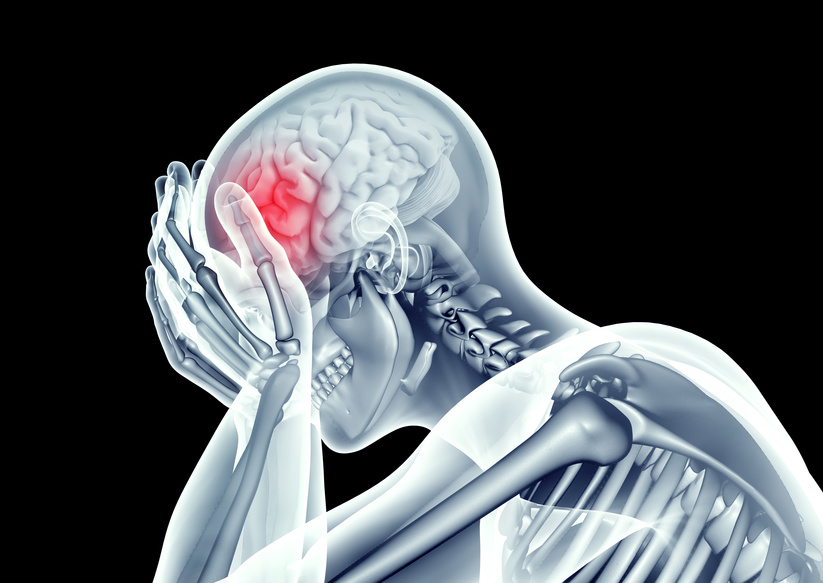The arrival of the summer season isn’t the only notable thing that’s happening this June. In fact, the sixth month of the year is brain injury awareness month. This type of injury occurs in higher incidences than breast cancer, multiple sclerosis, spinal cord injuries, and HIV/AIDs put together. However, while brain injuries are strikingly common, they go largely unnoticed by the general public.
Within the brain disorder community, a heavy emphasis has been placed upon the importance that public knowledge has on reducing the incidences of these traumatic injuries. Therefore, organizations from the grassroots to provincial level have dedicated their time to work towards increasing awareness.
So what is a Brain Injury?
Aptly put, an acquired brain injury is an injury to the brain that is not caused by genetics. Since these injuries can be caused by lack of oxygen, traumatic blows to the head, and severe neck rotation or whiplash, even concussions are classified as brain injuries.
While concussions are a mild form of traumatic brain injury, the symptoms can have serious effects on the sufferer’s health. According to Brain Injury Canada, these include:
- Amnesia
- Confusion
- Headache
- Nausea
- Sensitivity to light or noise
- Dizziness
- Impaired vision
- Concentration and memory problems
- Slowed reaction time
- Loss of consciousness
- Feeling foggy or lethargic
- Feeling increasingly irritable
Just how Prevalent are they?
Approximately 1.5 million Canadians live with this type of injury, with 160,000 new sufferers each year, yet the public knowledge of brain injury related deaths and disabilities is low. In reality, there are 451 people who suffer from new brain injuries each day. Falls and motor vehicle accidents cause around 50% of these injuries, and it’s been reported that 30% are sustained by children. Brain injuries are additionally the top killer and disabler of individuals younger than 44-years-old. Furthermore, sufferers are two times more likely to be men, while the recovery process takes longer for women.
Seeking Treatment
Brain injury Canada advises that if you suspect you may be suffering from a brain injury, it’s imperative that you receive treatment as soon as possible. After a sudden sharp blow to the head, the brain requires time to recover, which can typically involve prescribed bed rest and limited stimuli.
However, brain injury Canada insists that identifying a concussion can involve a handful of steps. It’s typical for doctors to conduct a neurological exam that involves testing of the memory, concentration, balance, coordination, and vision. If additional tests are necessary, they may involve a CT scan or MRI to rule out any additional brain injuries.
In some cases, neuropsychological testing is necessary to pinpoint any subtle changes to memory function. Furthermore, additional balance testing can be helpful for sufferers.
How to Lower your Risk
Participating in high-intensity sports and recreational activities can increase your risk of brain injury. Therefore, it’s imperative that protective body and headgear are worn, so that your equipment, as opposed to body, absorbs the impact of any potential blow. Furthermore, it’s essential when playing sports, that you take all the necessary cautions to avoid any contact between your head and other objects and players.
In addition to sports-related injuries, many brain injuries are caused by motorized vehicle accidents. Due to this, ensure that you always wear a seat belt and that any children are safely secured in a booster seat in the back of your car.
Furthermore, slip and fall accidents pose a serious risk of injury. To prevent falls, you can install handrails on staircases and bathroom walls, discard any area rugs, adequately light your home, de-clutter your floors, place a non-slip mat in your shower, and go for regular eye exams.
If you have children, there are many ways you can lower their risk of injury as well. By installing safety gates by stairways, visiting playgrounds that have shock absorbing materials on the ground, and using window guards to prevent falls, you can dramatically reduce your child’s chances of suffering an injury.
This June, the work that is being done to raise brain injury awareness is crucial for the public understanding of this otherwise silent epidemic. Brain injury does not discriminate, and can occur to individuals across all cultural and economic backgrounds. Similar to many disabilities, brain injuries do not only affect sufferers, but can dramatically affect the lives of their loved ones.
If you have been injured, and need legal assistance, call #1000 on your cell phone for free. We will offer you a free claim assessment.






